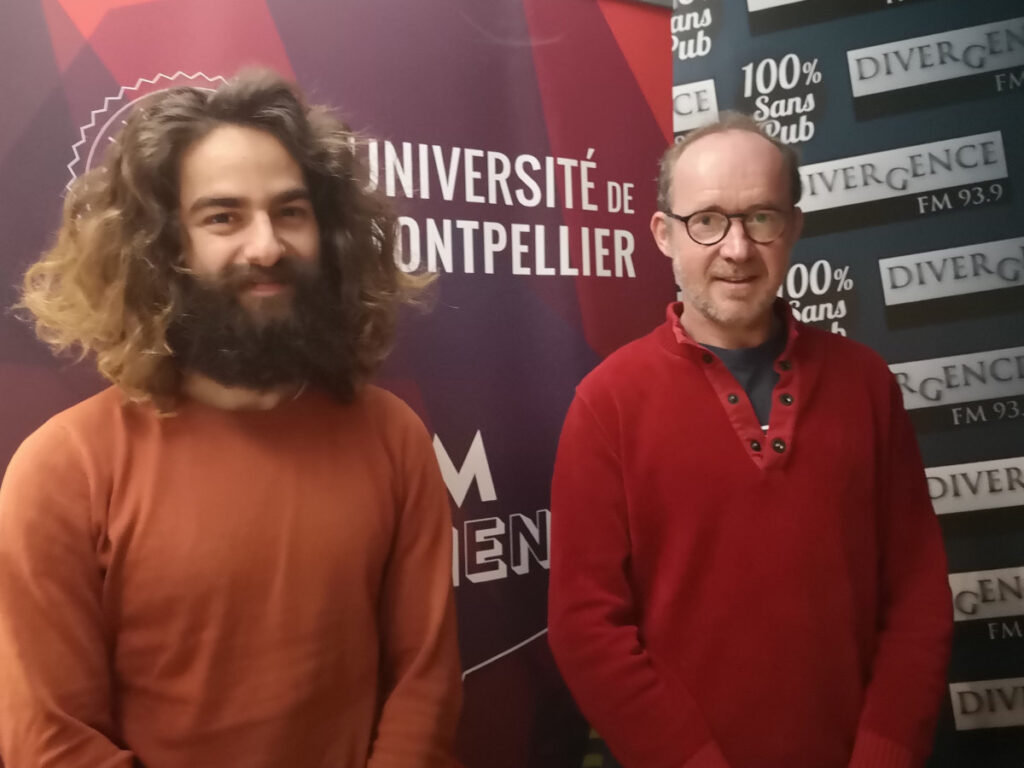Science at UM [S03-ep14]: The bumblebee and thought
This week on A l’UM la science, Samson Acoca-Pidolle and Pierre-Olivier Cheptou from Cefe talk to us about the worrying adaptation of certain plants to the collapse of pollinating insects. Géraldine Comps from MGEN, partner of the Faculty of Education in Les mercredis du savoir, presents a conference on adolescent mental health. The program is broadcast every Wednesday at 6 p.m. on Divergence FM 93.9.

"If bees disappeared from the surface of the earth, humans would only have four years left to live," implying four years of existence. You are probably familiar with this prophecy attributed—rightly or wrongly—to Albert Einstein. I remember hearing it as a teenager and wondering whether living species, whether animal or plant, should always be viewed in terms of the services they provide us. Isn't the disappearance of bees a catastrophe in itself? Must it lead to the disappearance of humans to become worthy of our interest? And if so, how many species are disappearing amid indifference because they are useless in our eyes?
Pushing a little further, my young teenage mind came up with another thought: what if we humans were to disappear, what other species would we take with us in our downfall?
That being said... Bees have not yet completely disappeared, even though their population, like that of all insects in general, is experiencing a massive decline, if not a collapse. This decline in pollination has not gone unnoticed in the plant kingdom, and certain plants, abandoned by their winged pollinators, have had to develop alternatives in order to continue reproducing. Good news? Not really. We discuss this with our guests.
Samson Acoca-Pidolle is a doctoral student at UM and Cefe, the Center for Functional and Evolutionary Ecology, working on a thesis on rapid adaptations in plants. He is the lead author of this publication. His thesis supervisor is our second guest, Pierre-Olivier Cheptou, who is a CNRS research director at Cefe. They co-authored a study published in the journal New Phytologist in which they focused on a flower, the field pansy. They found that in just three decades, the plant had adapted to the decline in bumblebees by increasing its self-pollination rate by 27% and "spending less" to attract pollinators: less nectar production and smaller, less visible corollas.
Read:
- The study: Ongoing convergent evolution of a selfing syndrome threatens plant–pollinator interactions, New Phytologist, December 19, 2023
- CP: Wildflowers abandon pollinating insects, CNRS, December 19, 2023
- Insect decline: plants fall into the trap of self-fertilization, Reporterre, December 20, 2023
- Faced with the gradual disappearance of insects, flowers are self-pollinating, France info, December 20, 2023
Our guest for the last three minutes will be Géraldine Comps. She works at MGEN and, in partnership with the Faculty of Education (FDE), is organizing a conference on adolescent mental health. It will take place on January 24 at 5 p.m. at the FDE and is part of the Wednesdays of Knowledge series.
At UM Science, you have the program, so let's get started!
Co-production: Divergence FM / University of Montpellier
Host: Lucie Lecherbonnier
Interview: Aline Périault / Lucie Lecherbonnier
Production: Alice Rollet / Tom Chevalier
Listen to the program “A l’UM la science” on Divergence FM 93.9

Find UM podcasts now available on your favorite platform (Spotify, Deezer, Apple Podcasts, Amazon Music, etc.).